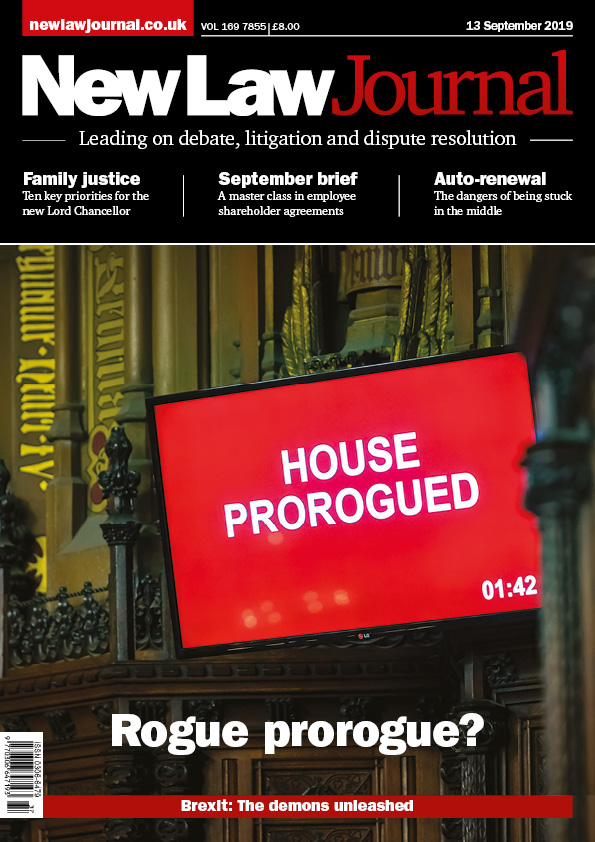
Graeme Fraser shares ten family law priorities with the new Lord Chancellor…for when Parliament returns
Nicholas Dobson mulls recent Parliamentary shenanigans & wonders how the dice will fall in the Supreme Court
Reducing the role of the reasonable man in a rectification context: Julia Petrenko & Edward Peters on FSHC Group Holdings Ltd v Glas Trust Corporation Ltd
Rob Jones, Jenny Young & Matthew Fox report on the dangers of auto-renewing contracts for medium & large businesses
Mark Pawlowski questions the usefulness of legal fictions in English law
Ian Smith highlights the importance of keeping your eye on the employment law ball & keeping an eye out for unicorns
MOVERS & SHAKERS

NLJ Career Profile: Ken Fowlie, Stowe Family Law
Ken Fowlie, chairman of Stowe Family Law, reflects on more than 30 years in legal services after ‘falling into law’

Jackson Lees Group—Jannina Barker, Laura Beattie & Catherine McCrindle
Firm promotes senior associate and team leader as wills, trusts and probate team expands

Asserson—Michael Francos-Downs
Manchester real estate finance practice welcomes legal director







